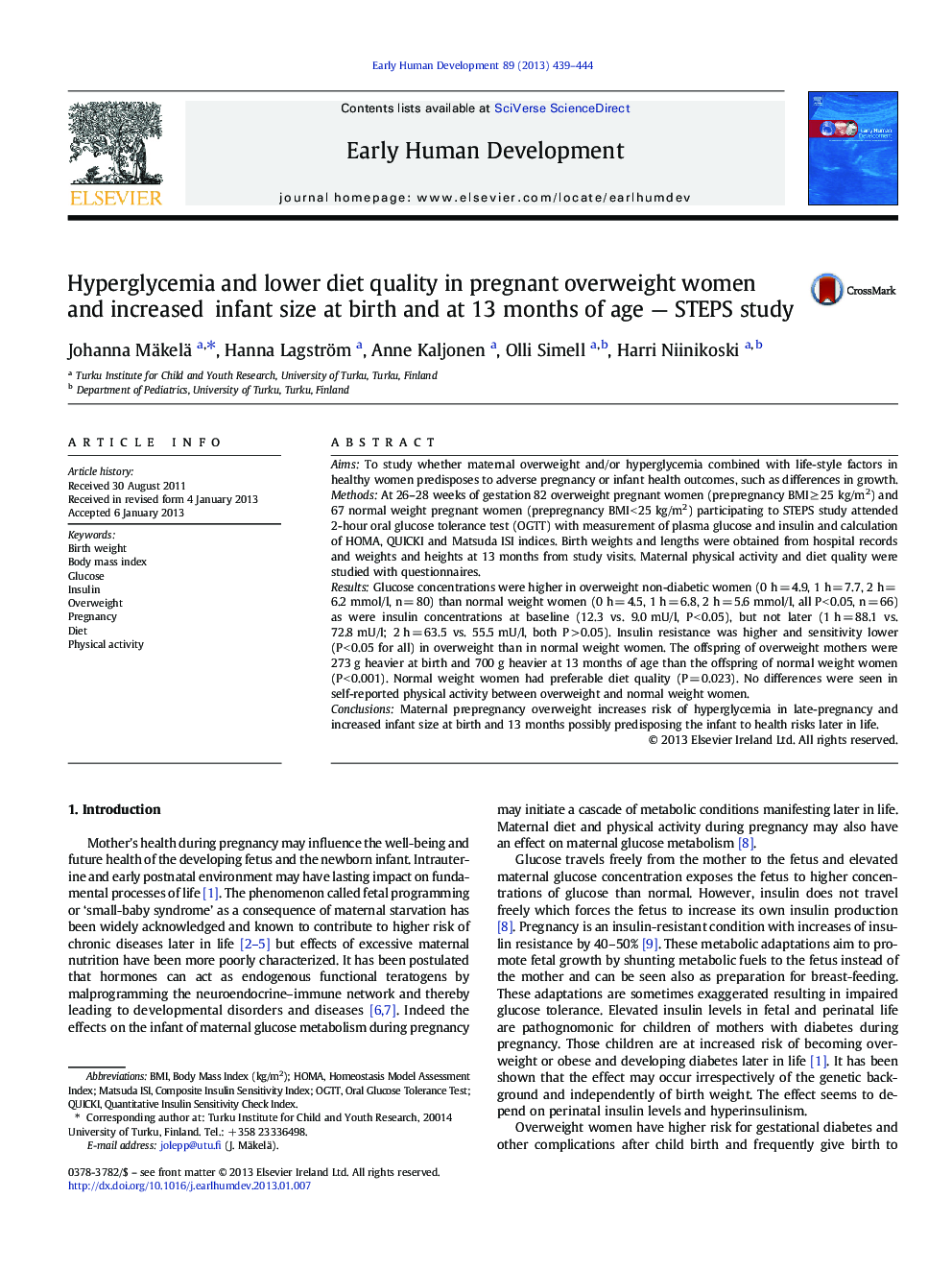| Article ID | Journal | Published Year | Pages | File Type |
|---|---|---|---|---|
| 3916691 | Early Human Development | 2013 | 6 Pages |
AimsTo study whether maternal overweight and/or hyperglycemia combined with life-style factors in healthy women predisposes to adverse pregnancy or infant health outcomes, such as differences in growth.MethodsAt 26–28 weeks of gestation 82 overweight pregnant women (prepregnancy BMI ≥ 25 kg/m2) and 67 normal weight pregnant women (prepregnancy BMI < 25 kg/m2) participating to STEPS study attended 2-hour oral glucose tolerance test (OGTT) with measurement of plasma glucose and insulin and calculation of HOMA, QUICKI and Matsuda ISI indices. Birth weights and lengths were obtained from hospital records and weights and heights at 13 months from study visits. Maternal physical activity and diet quality were studied with questionnaires.ResultsGlucose concentrations were higher in overweight non-diabetic women (0 h = 4.9, 1 h = 7.7, 2 h = 6.2 mmol/l, n = 80) than normal weight women (0 h = 4.5, 1 h = 6.8, 2 h = 5.6 mmol/l, all P < 0.05, n = 66) as were insulin concentrations at baseline (12.3 vs. 9.0 mU/l, P < 0.05), but not later (1 h = 88.1 vs. 72.8 mU/l; 2 h = 63.5 vs. 55.5 mU/l, both P > 0.05). Insulin resistance was higher and sensitivity lower (P < 0.05 for all) in overweight than in normal weight women. The offspring of overweight mothers were 273 g heavier at birth and 700 g heavier at 13 months of age than the offspring of normal weight women (P < 0.001). Normal weight women had preferable diet quality (P = 0.023). No differences were seen in self-reported physical activity between overweight and normal weight women.ConclusionsMaternal prepregnancy overweight increases risk of hyperglycemia in late-pregnancy and increased infant size at birth and 13 months possibly predisposing the infant to health risks later in life.
